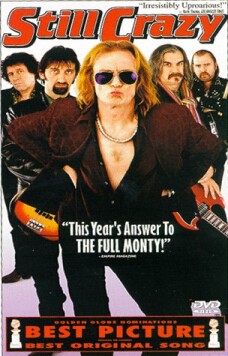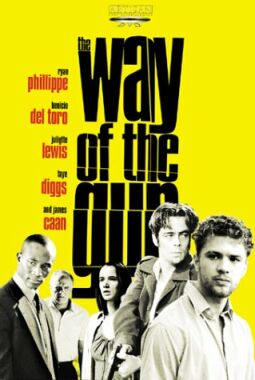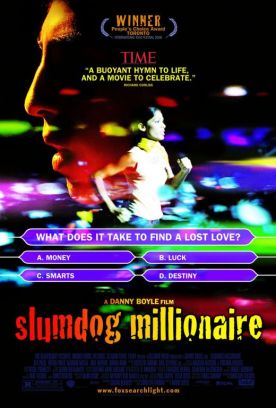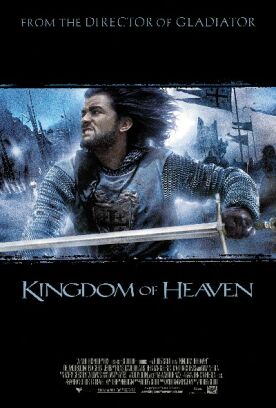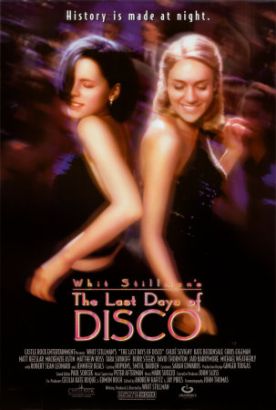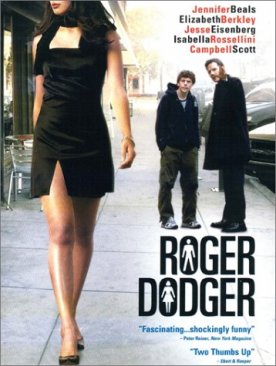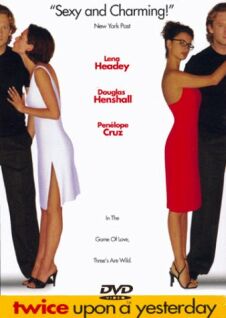Still Crazy
Still Crazy, directed by Brian Gibson from a script by Dick Clement
and Ian La Frenais, also the writers of The Commitments, does about as good a
job as it is possible to do with such predictable material as the reunion twenty
years later of an aging 70s pop group. The recent Velvet Goldmine dealt
with some of the same themes and the same period in a fashion much too portentous
and self-important. At least Still Crazy has the virtue of being funny. And the
music is better too. The group whose story it tells is the fictional Strange
Fruit, a band whose period of stardom was all too brief and terminated abruptly
when the band broke up in acrimony after being struck by lightning at the
Wisbeach Rock Festival in 1977.
“Divine intervention pulled the plug
on the Fruits,” as Hughie (Billy
Connolly), the band’s road manager
tells us in an introductory voiceover.
“I think God just got sick of all that
70s excess. That’s why he invented the
Sex Pistols.”
But twenty years later in Ibiza, a fan spots Tony Costello (Stephen Rea), the
band’s keyboardist, who now has
“the condom concession for the whole
of the Balearics” and Tony gets the
idea that there might be some money in a reunion. He gathers together the
surviving members of the band plus Karen (Juliet Aubrey), a former groupie who
had become the girlfriend of Brian Lovell (Bruce Robinson) the
“genius”
behind the band’s success. She tells
the others that Brian is dead. His brother, Keith, another genius, had overdosed
in a Little Chef restaurant, and Brian had thought it incumbent on him also to
make an early exit.
Karen, having left him because she
didn’t want to watch him kill himself,
married, had a daughter and divorced. Now she is working as a courier for
Japanese tourists in England. “I had
enough rock
‘n’
roll to last a lifetime,” she tells
Tony.
“So you gave it all up for
this?” he asks her on a particularly
bad day at work.
That is really the point of the film: that a life of sex, drugs and rock ‘n’
roll is a high that spoils you for a settled existence or honest employment,
though most of the other Fruits are trying and pretending to like both. Only Ray
(Bill Nighy), the rather dim lead singer, has stayed in music and retained at
least some of the money from their brief period of stardom. His hilariously
controlling Scandanavian wife, Astrid (Helena Bergström) scorns the idea of
reunion, saying that Ray’s solo career
“is very happening now music.
The Fruits,” she adds, making a
gagging sound, are “passé — an old
hat.” But Tony and Karen discover that
Ray’s last solo album was in 1989 and that his stately home is up for sale, so
they are able to persuade him to join the others, whose respectable, middle-aged
lives in the abstemious 1990s hide a yearning for the excesses of their youth in
the 1970s.
It is not a promising theme. As Hughie says, having last been on tour with
Aerosmith ten years ago, “They cleaned
up their act. I hope you guys are still crazy, or
I’m out of
here.” But the film has the sense to
recognize that middle aged craziness is very different from the youthful kind.
The reconstituted Fruits include the bassist, Les (Jimmy Nail), who is working
as a roofer, the drummer, Beano Baggot (Timothy Spall), who works in a nursery
and is on the run from the Inland Revenue, and a young kid called Luke (Hans
Matheson) whom they hire as a guitarist. A record company executive thinks he
can get them a reunion album if they can make a successful tour of Holland, and
so they set off on a bus recently repainted but not thoroughly cleaned after
another band had used it for its tour. “I love the smell of vomit in the
morning,” says Hughie anticipating the good times ahead.
Of course the predictable sorts of disasters and successes happen, but both
the jokes and the music are pretty good. The latter is sung very convincingly by
the actors themselves, who can sing both badly and well, as the occasion
demands. Especially memorable, perhaps, is the sight of these middle-aged youths
in a seedy Dutch club venue singing a song that goes
“I
won’t get old and change my ways/The
Revolution is now!” to a bunch of
bored Dutch kids. It would all be well worth watching but for the fact that we
know the sensitive and self-destructive genius, that stock-figure from the rock
mythology, is eventually going to have to put in his appearance and turn things
serious on us. He does so, but not obtrusively so, and the ending, with its
suggestion that the music is all that matters (all the human stories of romance,
friendship and enmity are left unresolved) is surprisingly inoffensive in its
absurdity.
Discover more from James Bowman
Subscribe to get the latest posts to your email.

